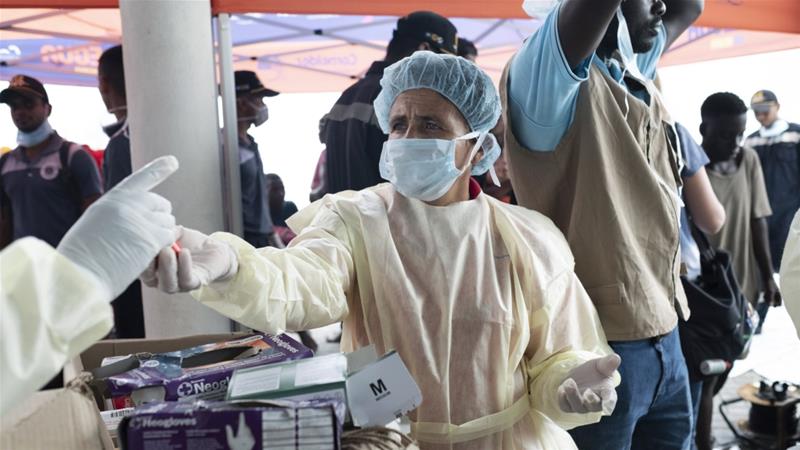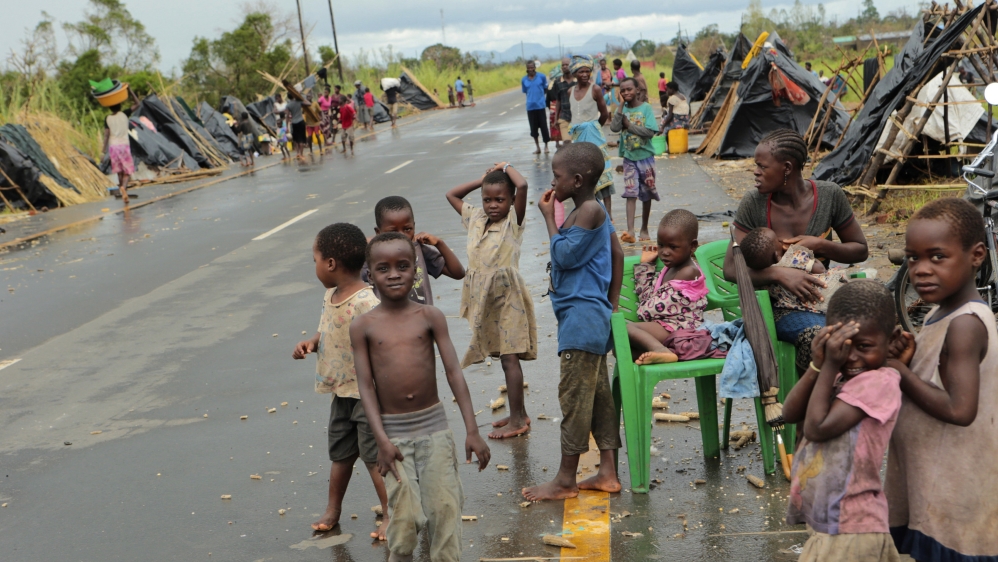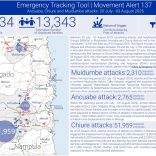Mozambique: ETT Movement Alert Report 137 Ancuabe, Chiure and Muidumbe attacks (20 July - 03 August 2025)
Mozambique: Cholera, malaria cases reported in cyclone-hit Beira

More than 65,000 people are already in shelters in central Mozambique [Wikus De Wet/AFP]
Aid agencies raise alert over sanitation and lack of safe drinking water in Beira as risk of disease outbreaks grows.
Humanitarian agencies have raised alerts over hygiene and safe drinking water needs eight days after Cyclone Idai lashed central Mozambique as some cholera cases are reported in the devastated port city of Beira.
Henrietta Fore, the chief of UN children’s agency UNICEF, told AFP news agency in Beira that stagnant water, decomposing bodies and lack of good hygiene and sanitation created a risk of outbreaks of malaria and cholera.
“We are running out of time, it is at a critical point here,” Fore said.
The International Federation of Red Cross said in a statement on Friday that some cholera cases have already been reported in Beira along with an increasing number of malaria infections.
Diaz Simango, the mayor of Beira who has been helping clean up the city by driving excavator, told AFP that cases of diarrhoeal infections had already been reported.
Aid group Doctors Without Borders said people were also at risk of respiratory infections such as pneumonia.

The number of dead were put at 259 in neighbouring Zimbabwe, which Idai tore through after Mozambique before moving to Malawi, which was left with 56 dead.
UN Secretary-General Antonio Guterres appealed for stepped up support for victims of Idai saying the UN and its humanitarian partners are scaling up the response but “far greater international support is needed”.
He said in a statement that “with crops destroyed in the breadbasket of Mozambique more people are at risk of food insecurity in all three countries”.
UN’s World Food Programme (WFP) declared the flood crisis a level three emergency, putting it on a par with Yemen, Syria and South Sudan.
The homeless, hungry and injured slowly made their way from devastated inland areas of Mozambique to Beira, which was heavily damaged itself but has emerged as the nerve centre for rescue efforts.

Aid workers are seeing many children who have been separated from their parents in the chaos or orphaned.
More than 65,000 people are already in shelters in central Mozambique and other sites are being opened.
Elhadj As Sy, secretary-general of the International Federation of Red Cross and Red Crescent Societies, said the relief efforts so far “are nowhere near the scale and magnitude of the problem”, and the humanitarian needs are likely to grow in the coming weeks and months.
“We should brace ourselves,” he said.

The victims included a mother buried in the same grave with her child; headmasters missing together with dozens of students; illegal gold and diamond miners swept away by raging rivers; and police officers washed away with their prisoners.
In the city of Mutare, Maina Chisiriirwa said she buried her son-in-law, who had gone to the diamond fields to mine illegally.
“There are no jobs and all he wanted was to feed his family. He was with his colleagues. They thought it would be easier to mine since the rains would keep the guards and the police away from patrolling,” Chisiriirwa said.
His colleagues survived, but her son-in-law was swept away, she said.












Leave a Reply
Be the First to Comment!
You must be logged in to post a comment.
You must be logged in to post a comment.